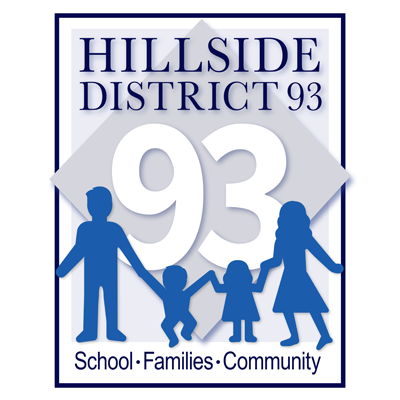Faith's Law
Sexual Abuse Response and Prevention Resource Guide Pursuant to Public Act 102-0676, 105 IL
Faith’s Law is named after prevention advocate and child sexual abuse survivor Faith Colson, who graduated from an Illinois high school in the early 2000s. Faith was sexually abused by a teacher at her high school. Years later, during the course of legal proceedings related to the abuse, Faith learned that several adults within her high school suspected that the teacher’s relationship with her was inappropriate but did not take appropriate action to report their concerns. As a result of her experiences, Faith pushed for change to state laws related to educator sexual misconduct in K-12 schools. Faith’s Law was passed by the 102nd General Assembly as two separate pieces of legislation.
The first legislation, Public Act 102-0676, took effect on December 3, 2021, and, for the first time, established the definition of sexual misconduct within the School Code. It further outlined the requirements for schools to develop and post employee code of professional conduct policies, which were to include the definition of sexual misconduct, and required ISBE to develop a resource guide for schools to make available to pupils, parents/guardians, and teachers. Public Act 102-0676 also expanded the definition of “grooming” in the Illinois Criminal Code, added “grooming” to the list of conduct that qualifies a child as an “abused child” under the Abused and Neglected Child Reporting Act, and added professional development training opportunities for employees seeking to renew their professional educator license.
The second legislation, Public Act 102-0702, will take effect on July 1, 2023. It focuses on the prevention of “sexual misconduct” as defined in the first part of the legislation (Public Act 102-0676) by school employees, substitute employees, and employees of contractors. Specifically, the Act adds employment history reviews as part of the hiring and vetting process, requires notices to be provided to parents/guardians and the applicable student when there’s an alleged act of sexual misconduct, and makes other changes to the process schools must follow when handling allegations of sexual misconduct.
Public Act 102-0702 also adds that if a district superintendent has any reasonable cause to believe a license holder has committed an act of sexual misconduct, the superintendent must report this information to the state superintendent of education and the applicable regional superintendent of schools. Further, the state superintendent can initiate the process to revoke or suspend a license, endorsement, or approval issued under Article 21B for reasons including sexual misconduct.
The ultimate goals of Public Act 102-0702 are to give parents/guardians notice regarding allegations of sexual misconduct that involve their student; equip schools across Illinois with better information regarding the employment history of an applicant or employee of a contractor; give schools the resources necessary to make well-informed decisions about who they are employing/contracting with; and protect students from acts of sexual misconduct by school employees, substitute employees, and employees of contractors.
New Hires – Employee Initiated Process/Employment Verification and Faith's Law
Please CLICK HERE to learn how to complete the process!
FORMER EMPLOYEES- FAITH's LAW and Employment Verification- Schools/Districts (If you DO NOT HAVE A VERIFENT ACCOUNT)
In order for your employee to request the completion of an Faith's Law (EHR form), you will need to register as a verifier on the Verifent platform. Follow these step-by-step instructions to register as a School District Verifier. This registration is completely free for school districts. Once you are registered with Verifent, the employee will need to place the request for the needed forms. You can direct your employee to this step by step guide, for them to complete their Faith's Law requirement.
Please reach out to support@verifent.com if you are in need of assistance with this process!
Employment and Income Verification- Outside Entities
Thank you for contacting us with your employment and/or income verification request. We use Verifent to respond to all verification requests. Therefore, you will need to visit www.verifent.com, register as a verifier, and submit your verification request. Once we receive the request through the Verifent website, we will securely respond to your request as soon as possible. Please see the instructions/FAQ’s below to obtain the information you need.
What is Verifent?
Verifent is an employment and income verification service that proves consumer’s employment and/or income to credentialed verifiers. It allows credentialed verifiers with a valid Fair Credit Reporting Act (FCRA) Permissible Purpose quick access to important information that assists in their decisioning process. Additionally, it enables employers to quickly, securely, and confidently manage the employment and income information process.
How do I access Verifent?
Please visit www.verifent.com.
How do I register as a verifier?
Please visit www.verifent.com, click on the ‘Let’s Get Started Now’ button in the upper right hand corner, click on ‘Verifiers,’ scroll to the bottom of the page and click on ‘Register Now.’
Am I a verifier?
All verifiers must apply (www.verifent.com) and be credentialed (approved) before gaining access to Verifent. This is a one-time requirement. Additionally, every verifier must have an approved Fair Credit Reporting Act (FCRA) permissible purpose.
What information do I need to obtain a verification?
Our Organization Code is: F981A5. In addition to our Organization Code, you will need the consumer’s correct first and last name while working for us, their date-of-birth, last four digits of their Social Security Number, and proof of consumer consent for any verification including income information.
What is the difference between a commercial and government verifier?
A commercial verifier is anyone that is not a government agency; i.e., mortgage company, auto finance, apartment complex, pre-employment screening, credit card, etc… A government verifier is a government agency looking to assist a consumer. i.e., SNAP, TANF, WIC, child support, Medicaid, subsidized housing, etc...
